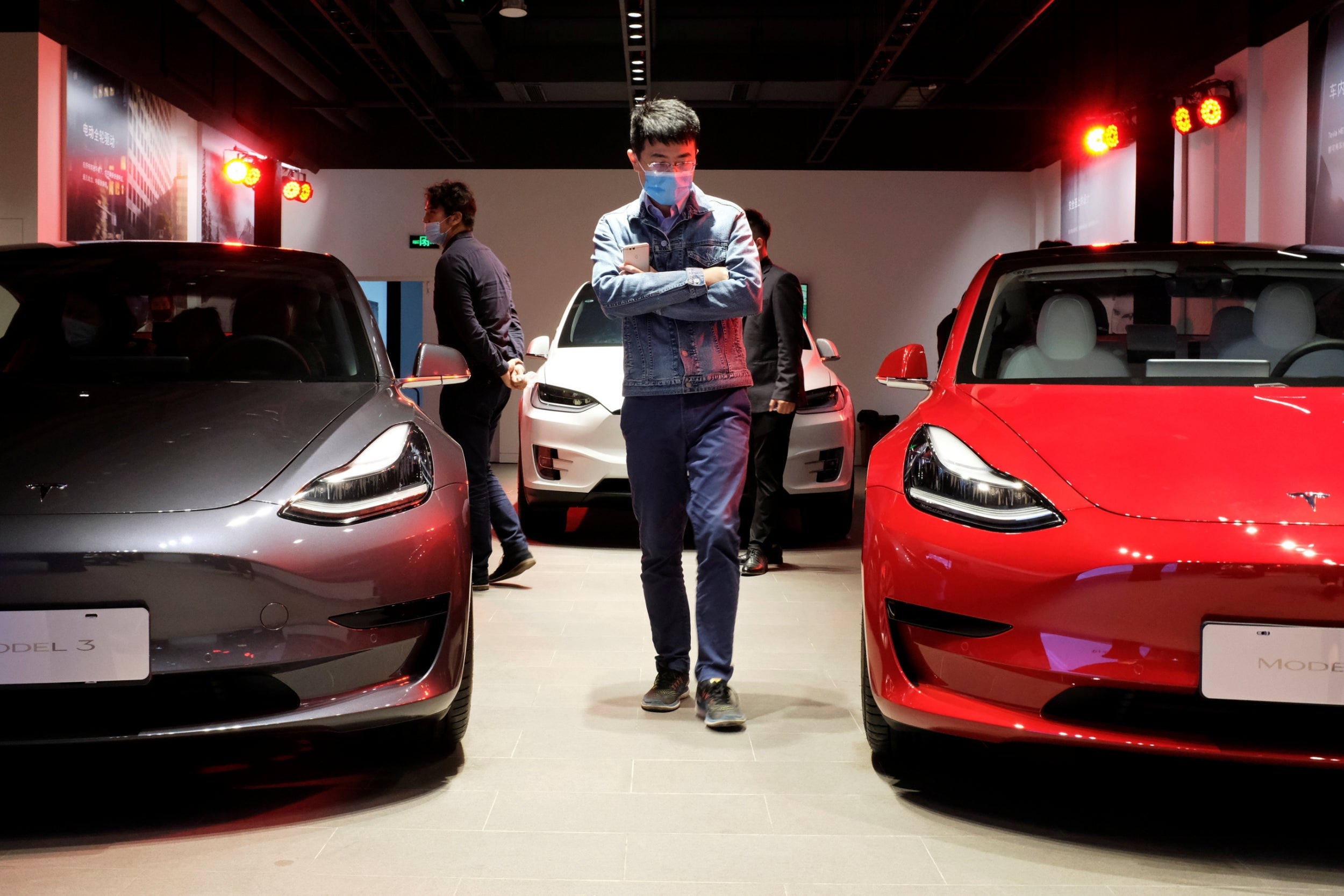Landmark million-mile battery to power electric vehicles is ready for production
The Chinese company that supplies Tesla has come up with a battery that can last 16 years and potentially be reused in a second vehicle

Your support helps us to tell the story
From reproductive rights to climate change to Big Tech, The Independent is on the ground when the story is developing. Whether it's investigating the financials of Elon Musk's pro-Trump PAC or producing our latest documentary, 'The A Word', which shines a light on the American women fighting for reproductive rights, we know how important it is to parse out the facts from the messaging.
At such a critical moment in US history, we need reporters on the ground. Your donation allows us to keep sending journalists to speak to both sides of the story.
The Independent is trusted by Americans across the entire political spectrum. And unlike many other quality news outlets, we choose not to lock Americans out of our reporting and analysis with paywalls. We believe quality journalism should be available to everyone, paid for by those who can afford it.
Your support makes all the difference.The world’s largest maker of batteries for electric vehicles has made a breakthrough with a power pack that lasts more than a million miles and has the potential to be reused.
The Chinese company, Contemporary Amperex Technology Co. Ltd (CATL), which supplies Tesla and Volkswagen AG, has created a battery that runs for 16 years and 1.24million miles – the equivalent of making more than 400 journeys from coast-to-coast in the US.
Currently, the average EV battery’s lifespan is around 200,000 miles, according to Consumer Reports.
In an interview with BloombergNEF, CATL Chairman Zeng Yuqun said: “If someone places an order, we are ready to produce” but did not say if any contracts had yet been signed for the revamped battery pack.
Electric transport is viewed as crucial in tackling climate change, shifting our roads from gas-guzzling vehicles to cleaner models. The Green New Deal, championed by US Democrats, includes electric vehicles as part of the strategy for reaching net-zero global emissions by 2050.
There is also the added benefit in improving air quality in large cities, which many residents experienced temporarily when emissions, including from traffic, decreased during the Covid-19 lockdown.
EVs are still a small slice of the global car market but Felipe Munoz, a global analyst at automotive experts, JATO, told NPR last year that he expects electric vehicles will outsell conventional ones by 2030.
Despite enthusiasm for eco-friendly cars, doubts have persisted over EVs' battery capabilities and if they would need to be replaced.
A longer lifespan in batteries means that they have the potential to be reused in a second vehicle which would lower costs and make them more attractive to customers – particularly in a market where vehicles powered by fossil fuels are benefiting from the recent collapse in global oil prices.
The new battery costs about 10 per cent more than EVs' current power packs, Bloomberg reported.
Mr Zeng started CATL a decade ago and the company is now worth $47bn. He said that although the pandemic would slow the EV market, sales will likely bounce back next year.
In February, CATL signed a battery supply agreement with Elon Musk's Tesla, which also has a deal with Japan’s Panasonic Corp.
China is the largest market in EVs and Tesla is currently building Model 3 vehicles from its $2bn Shanghai factory.
Join our commenting forum
Join thought-provoking conversations, follow other Independent readers and see their replies
Comments